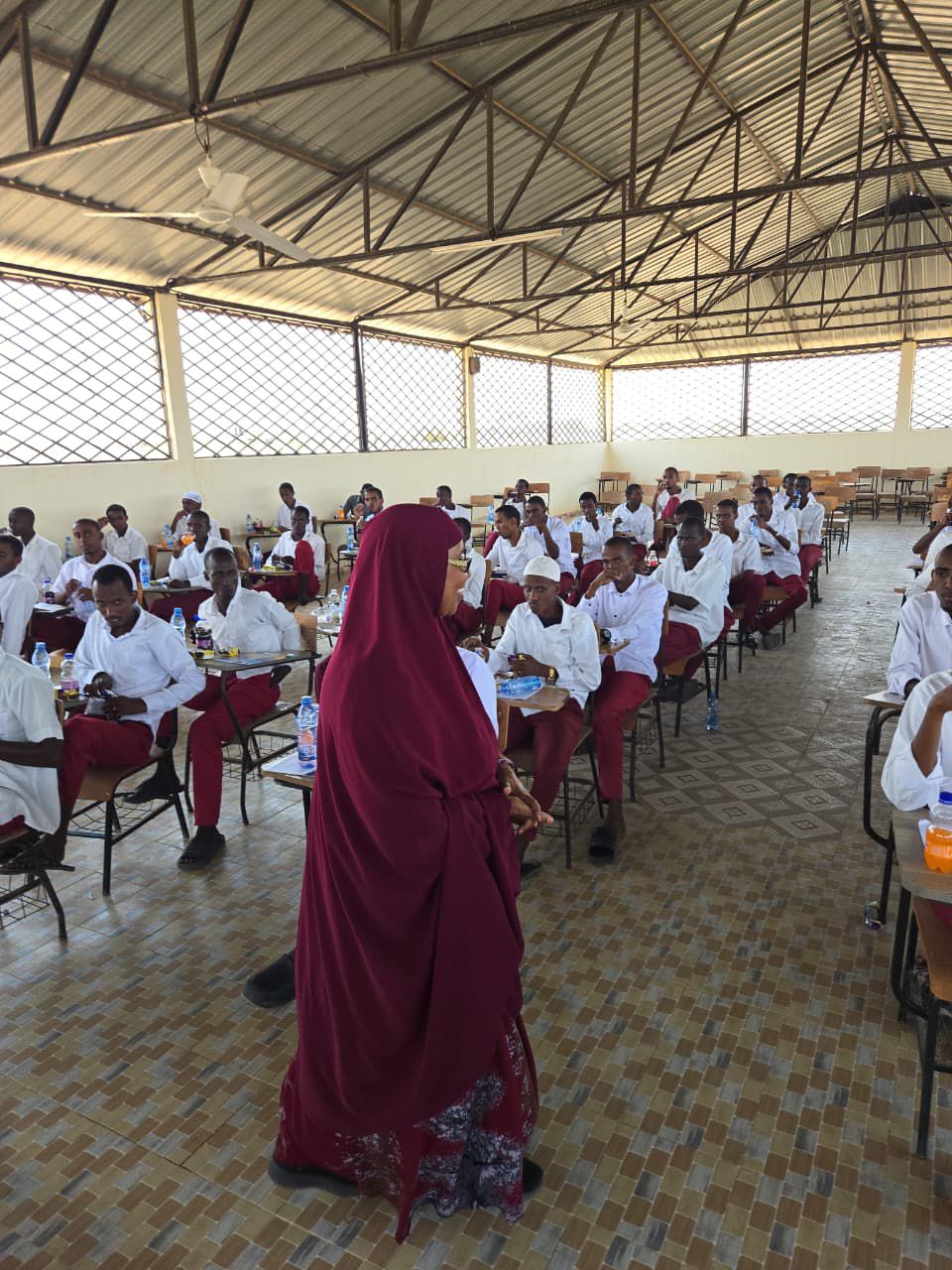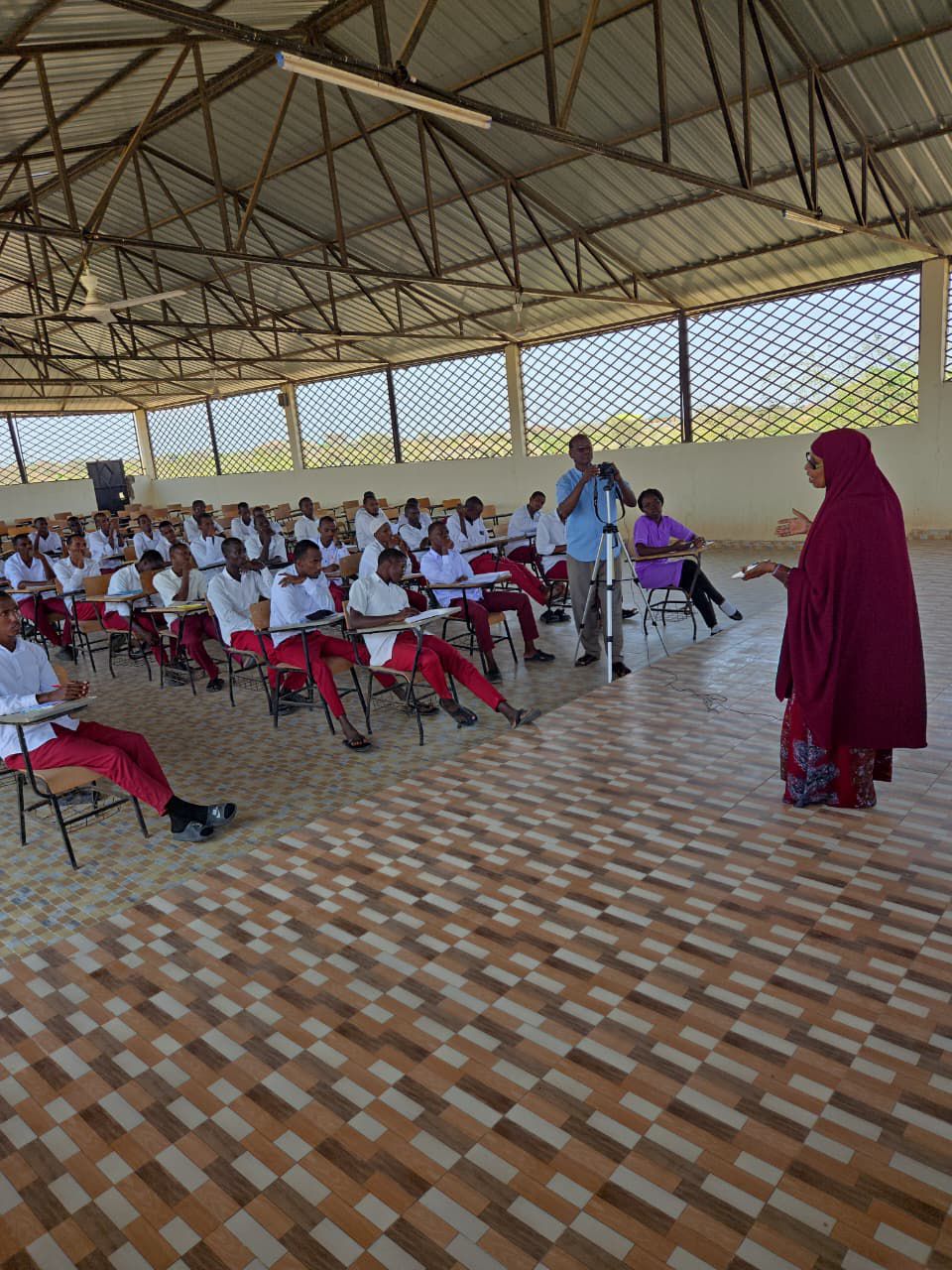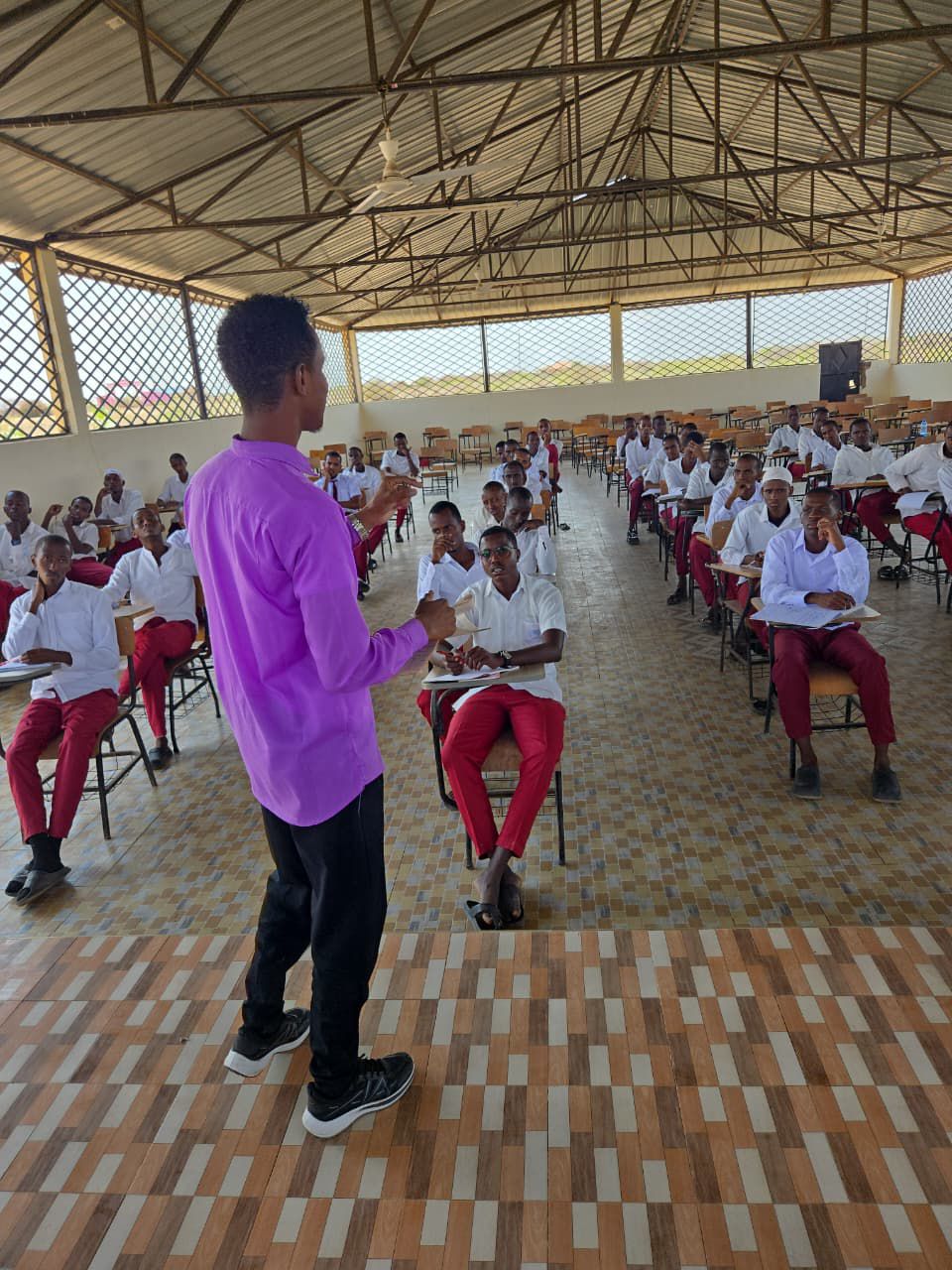
Sophia Sheikh Omar, the college manager, at the outreach programme with students

Sophia Sheikh Omar, the college manager at the outreach programme with students.

A
Garissa-based college has launched a community outreach programme to
shield young people from the growing threat of human trafficking,
referred to locally as Tahrib.
The practice, which involves the smuggling of youth to North Africa and beyond, has surged in recent months. Traffickers often lure victims with false promises of opportunities abroad, only to hand them over to criminal networks or militia groups.
Some families, desperate to secure a better future for their children,
have reportedly sold property—only to be drawn into heartbreaking extortion
schemes.
In
response, the NEP College of Health Sciences has embarked on a bold initiative
centred on education and empowerment. Over the weekend, the college launched a
targeted outreach campaign focusing on Form 4 students in Garissa county.
The programme offers career guidance, counseling and crucial information on
the dangers of human trafficking.
Led by
NEP College students, staff and management, the initiative aims to steer vulnerable
youth toward meaningful careers in healthcare—positions where they can one day
serve their own communities and avoid the traps of smugglers.
At the
forefront of the campaign is Sophia Sheikh Omar, the college manager, who
delivered a heartfelt address at County High School. The school has recently
been grappling with the disappearance of three Form 2 students, who were
later reported to have been trafficked to Libya.
“You have
a bright future as nurses, doctors, and leaders in your communities,” she said. “Don’t let traffickers steal your future. Stay focused, stay safe.”
She
warned students that traffickers often target vulnerable individuals with false
promises of employment and prosperity, only to later demand ransoms from their
families.
“We are
losing our future doctors and nurses to the sea and to unsafe conditions
abroad,” she said. “Families are being forced to sell everything they own in
hopes of rescuing their children.”
Counseling
psychologist Amina Issa also addressed the students, pointing to the lack of
structured career guidance as a contributing factor.
“These
young people are vulnerable after high school. They don’t know what’s next.
That’s exactly when traffickers strike,” she said. “We must give them a purpose
and a path.”
Phineas
Mwiringi, a local teacher who accompanied his students to the event, praised
the initiative. He revealed that his school had experienced similar tragedies.
“Three of
our students disappeared after the holidays. We later learned they were
trafficked to Libya. Their parents are devastated,” he said.
The NEP
College outreach included guided tours of the campus, career talks on
health-related fields, and a strong anti-trafficking message.
Human trafficking
continues to affect youth from Northern and Coastal Kenya, with some victims
trafficked to the Middle East, South Asia, and parts of Europe through
fraudulent recruitment schemes.
According
to the International Organization for Migration, the crisis is driven by
a combination of poverty, limited access to education, unemployment, and weak
enforcement of existing laws.
Kenya has
legal mechanisms in place, including the Counter-Trafficking in Persons Act and the National Assistance Trust Fund for Victims, but enforcement and
public awareness remain inconsistent.
Last
week, ODM nominated MP Umulkheir Harun raised similar concerns in Parliament,
calling on parents, religious leaders, and government institutions to confront
the growing threat. She warned that traffickers are increasingly targeting
youth from Garissa, Wajir, Mandera, and the Dadaab refugee camps.
“They are
promised jobs and better lives abroad, but many end up exploited and enslaved,”
she said.
NEP
College says it plans to expand the outreach to more schools in the region,
partnering with government and civil society actors to ensure youth are
informed and empowered to make safer choices.




![[PHOTOS] Ruto joins State House families in worship](/_next/image?url=https%3A%2F%2Fcdn.radioafrica.digital%2Fimage%2F2025%2F09%2Fa6dc59b3-4273-4667-bd88-1fffcb5c00d3.jpg&w=3840&q=100)





